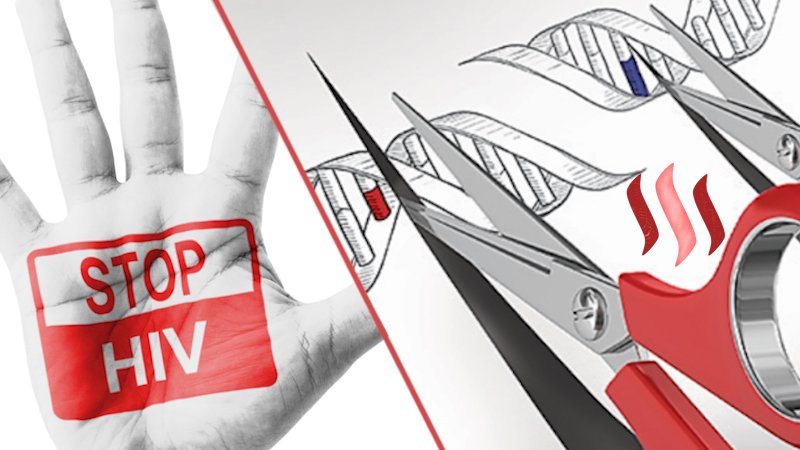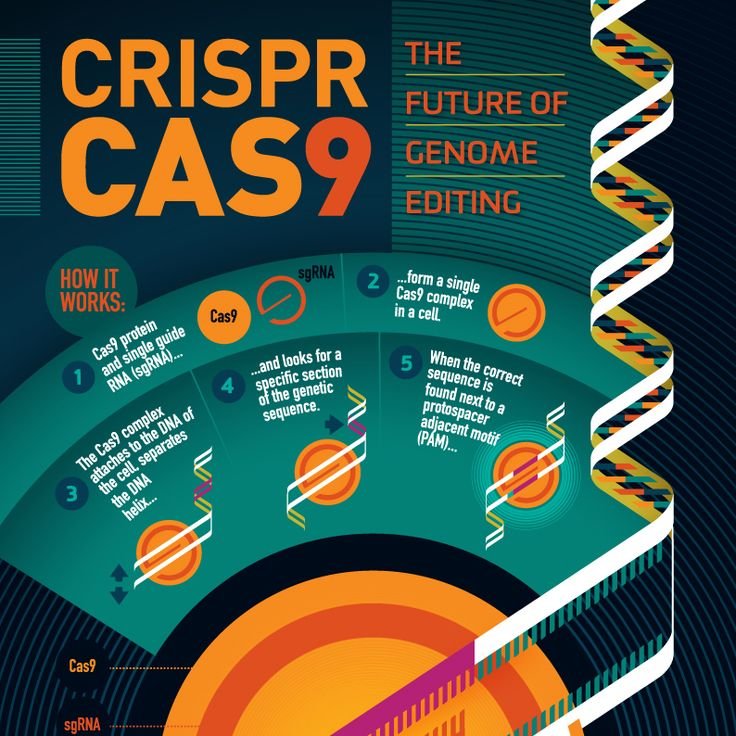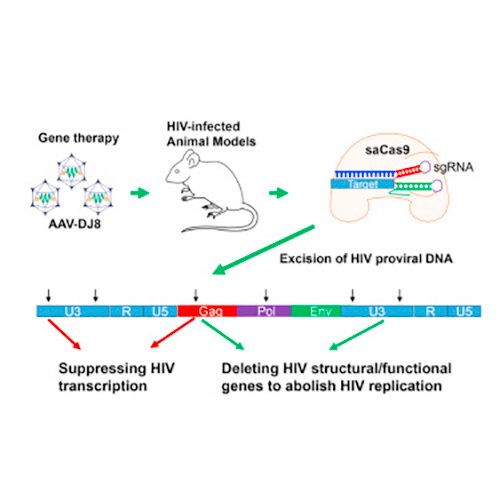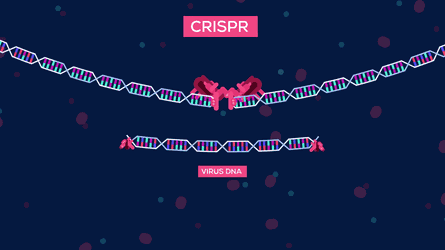
CRISPR Cas9 is a revolutionary new gene editing tool, and researchers have now been able to use it to remove HIV from living animals!
In case you haven't heard about CRISPR yet, I've already written a complete post about it.
Here is a quote from my article that explains briefly what CRISPR is:
(...) With this new, revolutionary technology, you would be able to specifically change and edit sequences of your DNA. You could completely delete certain genes from a cell, or simply alter the amounts of it, or create a mutation inside a gene by changing the base pairs (tiny pieces of DNA). This process is called genetic engineering.

The method is still very young, but the results and progress made within the last few months have been fascinating!
Last september, german scientists used CRISPR to remove cancer mutations in animals, and only a few months later Chinese researchers first experimented with the tool on a human being.
A few days ago, a new research from scientists of the University of Pittsburgh was published: they tested CRISPR on mice - and were able to increase survival rates and shrink tumors without attacking healthy cells.
They were transplanting human prostate- and liver-cancer cells into mice, and then used CRISPR to try to remove them.
Their experiment targeted so-called "Fusion Genes", a mutation that appears whenever two distinct genes are combined into a single hybrid, which often leads to cancer.
These fusion genes are unique, so CRISPR can identify them quite easily and insert cells that kill cancer instead. And all of that without harming healthy cells, which is something that's not the case in chemotherapy.
The results of the experiment were incredible: the tumors shrunk immensely (some up to 30%) and didn't spread any further, and all of the test animals survived.
In the control group on the other hand, the tumors spread further, grew 40 times larger and none of the test subjects survived.
So this is a revolutionary success for CRISPR, rising the survival rate from 0 to 100% !

“This is the first time that gene editing has been used to specifically target cancer fusion genes. It is really exciting because it lays the groundwork for what could become a totally new approach to treating cancer. Other types of cancer treatments target the foot soldiers of the army. Our approach is to target the command center, so there is no chance for the enemy’s soldiers to regroup in the battlefield for a comeback.”-Jian-Hua Luo, lead author
Of course, this was only an experiment in mice, and we're still a long way from curing humans from HIV with CRISPR.
But still, it shows the enormous potential of the CRISPR gene editing method - and if we're already seeing results like these after only a few years of research, what will we be able to achieve in a few decades?
Paul Knopefler, a stem cell biologist at University of California Davis, stated: "In actual human patients there’s no way that a Crispr gene therapy will ever get 100 percent of HIV. How highly efficient will be ‘efficient enough’ to make a clinically meaningful impact?”
But Kamel Khalili, another author of the paper, believes strongly in his work - and even thinks that this might be the cure they have been searching for for years and years:
"“I strongly believe in the gene editing strategy, and with my 30 years in HIV research, I think this is the one that is going to take us to the end.”-Kamel Khalili, author of the paper

We will see how experiments with CRISPR will turn out in the future - there is definitely a lot of potential in this revolutionary tool, and it might just change the way we think about diseases and our own genes!
Images: 1, 2, 3, 4, Sources: 1, 2, 3, 4, 5, 6
- Instagram -

© Sirwinchester
